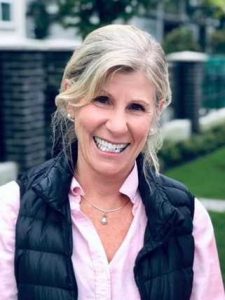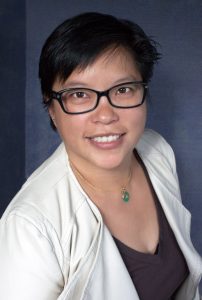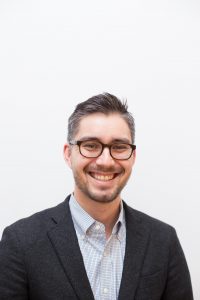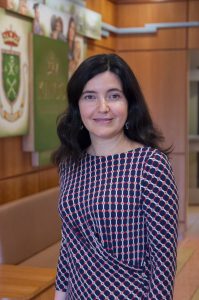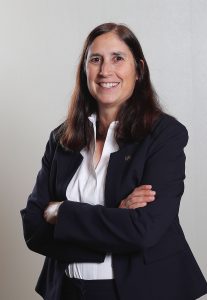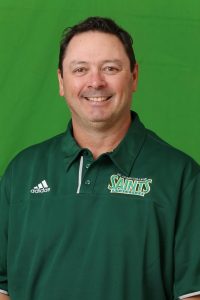Celebrating our Outstanding Alumni
In honour of the valued work and contributions of the UBC Faculty of Education Alumni, biographies and interviews with our illustrious alumni will be released between 2021 & 2022.
Robyn Sneath, BEd’11
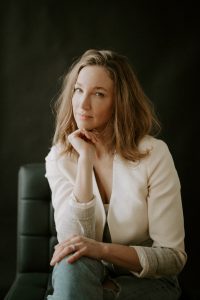 Dr. Robyn Sneath is an entrepreneur and community builder. She is the CEO of Sneath Group, a consortium of three businesses – Bowerbird Stays (designer vacation rentals), SKIN Clinics (cosmetic and medical dermatology), and Sneath Projects (general contractor). She is passionate about building healthier, more vibrant communities, and to that end she serves on the board of the Canadian Museum for Human Rights, CanU Canada, and the D.F. Plett Historical Research Foundation. She holds a Master’s from Harvard, a Bachelor of Education from UBC, a BA from the University of Winnipeg, and a doctorate from the University of Oxford, in Education, where she studied as a Trudeau scholar. Before going into business, she taught history at the secondary and post‐secondary level, and worked as a researcher and a fashion model. As the first in her family to go to university, she is passionate about the transformative power of education. Together with her husband, Dr. Sneath has three wild and wonderful young kids, a St Berdoodle named Jeff, and makes her home in Brandon, Manitoba.
Dr. Robyn Sneath is an entrepreneur and community builder. She is the CEO of Sneath Group, a consortium of three businesses – Bowerbird Stays (designer vacation rentals), SKIN Clinics (cosmetic and medical dermatology), and Sneath Projects (general contractor). She is passionate about building healthier, more vibrant communities, and to that end she serves on the board of the Canadian Museum for Human Rights, CanU Canada, and the D.F. Plett Historical Research Foundation. She holds a Master’s from Harvard, a Bachelor of Education from UBC, a BA from the University of Winnipeg, and a doctorate from the University of Oxford, in Education, where she studied as a Trudeau scholar. Before going into business, she taught history at the secondary and post‐secondary level, and worked as a researcher and a fashion model. As the first in her family to go to university, she is passionate about the transformative power of education. Together with her husband, Dr. Sneath has three wild and wonderful young kids, a St Berdoodle named Jeff, and makes her home in Brandon, Manitoba.
Katie McCormack, BEd’85, Dip (Ed) ’03
Katie always knew she wanted to be a teacher. She was lucky enough to teach for 37 years across three provinces. She loved it all – yes even the marking and reporting!
Katie has a background in psychology and math and early on realized the importance of the connection between those two subjects. The fear of math was very real for many students and this fear interfered with their learning of basic concepts.
Her strong passion for math and inclusive education led her to develop and implement “Daily Math”. The program was designed to provide extra time and support for students so they could successfully achieve the Gr 8 and 9 math outcomes. It was aimed at students who in the past had received c- or less for their previous year’s final mark. The goal was for students to understand how all math concepts are related and connected and not just be seen as separate skills that students may or may not have mastered. Because the students had math every day, they received an extra 100 hours of math support. All assignments and practice was done during class time where students received immediate feedback and help. This program resulted in a significant reduction in students’ academic intervention and many students were able to stay on the traditional math track. This program and other activities such as Math Madness Week and teacher mentorship led to Katie being nominated and awarded the BCAMT 2016 Provincial Outstanding Teacher Award.
She recently retired after ending her career in Kamloops as the district’s K-9 Numeracy Resource Teacher. She continues to give workshops on all areas in math to many districts around the province.
Brian Taylor, BEd’02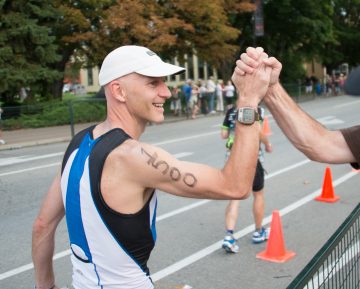
As Douglas Adam’s famously said “I may not have gone where I intended to go, but I think I have ended up where I needed to be.” My undergrad degree was in Mathematics at UBC, but I had an interest in Finance. So, I went off to the University of Illinois in pursuit of an MBA. That eventually took me to Chicago and New York, working for big banks and small software companies, but I returned home and after briefly working at a software firm in Vancouver I decided to change directions and become a teacher. I thought that if I didn’t like it I could always go back to my former life. I was able to secure a contract at a private school even before I graduated. My salary was less than half what I was making at the software firm, but I immersed myself in teaching math and the life of the school and found it very rewarding. For most of my career I’ve taught mathematics, from Math 8 to Calculus 12, but I’ve always had an interest in computer science, dating back to when I learned to program on an Apple II+ computer when I was in grade 8. I now teach Computer Science at David Thompson Secondary and thoroughly enjoy it. I like the fact that I’m continually learning new things and helping students explore a field that will be a big part of their future regardless of what they decide to pursue.
Dr. Shannon Leddy, BEd’05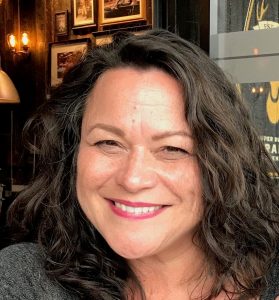
Dr. Shannon Leddy (Métis) is a Vancouver based teacher and writer whose practice focuses on using transformative pedagogies in decolonizing and Indigenizing teacher education. She holds degrees in Art History and Anthropology from the University of Saskatchewan, an MA in Art History, and a BEd from the University of British Columbia. Her PhD research at Simon Fraser University focused on inviting pre-service teachers into dialogue with contemporary Indigenous art as a mechanism of decolonization in order to help them become adept at delivering Indigenous education without reproducing colonial stereotypes. Before arriving at UBC, Shannon taught high school Art, Social Studies, and English. She is currently the Vice President of the Board of Directors at grunt gallery (sic), the Co-Chair of the Institute for Environmental Learning, and a Research Fellow with the Institute for Public Education/BC. She is also a mother and a Nehiyaw/Cree language learner.
As the Course Coordinator for EDUC 440, Indigenous Education in Canada, Shannon continues to work towards the twin goals of decolonizing curriculum and Indigenizing teaching. To that end, she has created the Decolonizing Teaching Indigenizing Learning website for use by EDUC 440 students and the broader faculty. She continues to engage in research that supports her work in Indigenous, transformative, enviroenmental, and anti-racist education, and continues to publish in order to add her work to these growing and interconnected discourses.
Doramy Ehling, BEd’80
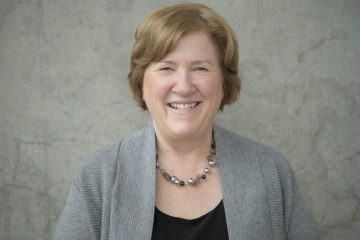 As CEO of the Rick Hansen Foundation (RHF), Doramy Ehling champions the organization’s vision of an inclusive world where people with disabilities are living to their full potential. Doramy takes great pride in steering the development of several programs at RHF that break down barriers to improve the lives of millions of Canadians. RHF’s primary initiatives include the Rick Hansen Foundation School Program (RHFSP) that teaches youth about the value of diversity and inclusion and the Rick Hansen Foundation Accessibility Certification™ (RHFAC) program, which trains and designates professionals to rate the meaningful accessibility of buildings to enable everybody to go everywhere.
As CEO of the Rick Hansen Foundation (RHF), Doramy Ehling champions the organization’s vision of an inclusive world where people with disabilities are living to their full potential. Doramy takes great pride in steering the development of several programs at RHF that break down barriers to improve the lives of millions of Canadians. RHF’s primary initiatives include the Rick Hansen Foundation School Program (RHFSP) that teaches youth about the value of diversity and inclusion and the Rick Hansen Foundation Accessibility Certification™ (RHFAC) program, which trains and designates professionals to rate the meaningful accessibility of buildings to enable everybody to go everywhere.
Before joining the Foundation, Doramy spent 27 years in high-performance sport for several national multi-sport organizations and with the Government of Canada/Sport Canada, where she worked with the Federal Secretariat on the Vancouver 2010 Olympic and Paralympic Games. Doramy also collaborated on several major policy initiatives, including the National Sport Policy, Federal Hosting Policy, Policy on Sport for Athletes with Disabilities, and Policy on Aboriginal Peoples’ Participation in Sport.
With the belief that sport is an excellent tool for social inclusion, Doramy has held various volunteer positions with sport organizations over the past 30 years. She is currently serving as Chair for the Host Committee of the National Women’s Volleyball Training Centre at the Richmond Olympic Oval in British Columbia and is the President of Volleyball BC.
She is a member of the Advisory Board of the Diversity Institute at Ryerson University and a member of the Greater Vancouver Board of Trade’s Advisory Committee of the Diversity and Inclusion Leadership Council. Doramy collaborated with other disability organizations as part of the Federal Accessibility Legislation Alliance that pushed for the historic Accessible Canada Act and the Pan-Canadian Disability Coalition that spearheaded the movement to secure supports for Canadians with disabilities during the Covid-19 pandemic.
Karen Lee, BEd’84, MA’97, PhD’04
 Karen V. Lee, Ph.D. is Lecturer, Faculty Advisor, Area Coordinator, and co-founder of the Teaching Initiative for Music Educators cohort (TIME), at the Faculty of Education, University of British Columbia, Vancouver, B. C., Canada. Her research interests include issues of memoir, autoethnography, poetic inquiry, performance ethnography, creative-relational inquiry, women’s life histories, writing practices, music/teacher education, and arts-based approaches to qualitative research. Her doctoral dissertation (2004) was a book of short stories titled Riffs of Change: Musicians Becoming Music Educators. She is teacher, writer, musician, teacher/music educator, and researcher. Currently, she teaches undergraduate and graduate students at the university in both traditional and online contexts alongside her academic and scholarly writing pursuits. In 2020, she received the Killam Teaching Prize.
Karen V. Lee, Ph.D. is Lecturer, Faculty Advisor, Area Coordinator, and co-founder of the Teaching Initiative for Music Educators cohort (TIME), at the Faculty of Education, University of British Columbia, Vancouver, B. C., Canada. Her research interests include issues of memoir, autoethnography, poetic inquiry, performance ethnography, creative-relational inquiry, women’s life histories, writing practices, music/teacher education, and arts-based approaches to qualitative research. Her doctoral dissertation (2004) was a book of short stories titled Riffs of Change: Musicians Becoming Music Educators. She is teacher, writer, musician, teacher/music educator, and researcher. Currently, she teaches undergraduate and graduate students at the university in both traditional and online contexts alongside her academic and scholarly writing pursuits. In 2020, she received the Killam Teaching Prize.
Joy Ruffeski, BEd’65
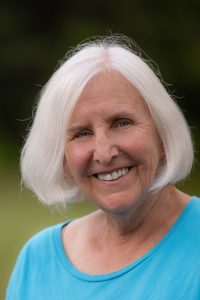 Joy was raised in a family in which helping others less fortunate was the norm. After a varied career as a teacher, curriculum developer, workshop facilitator, staff developer, and school administrator she retired from the public school system and worked at the university level with Masters’ and Doctoral students. While doing so she received the Sperling Award for Teaching Excellence. Her educational studies taught her to question the status quo and to look for alternative ways to solve problems.
Joy was raised in a family in which helping others less fortunate was the norm. After a varied career as a teacher, curriculum developer, workshop facilitator, staff developer, and school administrator she retired from the public school system and worked at the university level with Masters’ and Doctoral students. While doing so she received the Sperling Award for Teaching Excellence. Her educational studies taught her to question the status quo and to look for alternative ways to solve problems.
On a retirement trip, she visited schools in Tanzania and saw the desperate wish for children there to obtain an education. In a country where children start primary school speaking only their tribal language but are taught in the national language of Swahili, they face educational challenges immediately. If they qualify to attend secondary school and can pay the fees to do so, the language of instruction is English even though they have not had any previous instruction in that language. Rote learning without understanding becomes the norm. Consequently, Joy became involved with the Canadian Harambee Education Society (http://www.canadianharambee.ca), an NGO that provides scholarships so that needy but bright girls can attend secondary school in Kenya and Tanzania. CHES focuses on the education of girls for “if you educate a man, you educate an individual, but if you educate a woman, you educate a family” – an African saying.
Since 2008 as CHES’ Executive Director, Joy has overseen the charity’s operations. Her initial background in curriculum development enabled her to develop a 4-year oral-based English-Immersion program for Tanzanian CHES students and train educators in teaching for understanding. As a result, a minimum of 50% of CHES students go on to further studies and become leaders in their communities and their country. She makes regular trips to both Kenya and Tanzania and is proud to call individuals there her “African family”.
Joy also instructs Taoist Tai Chi classes, is the registrar for the Langley Power and Sail Squadron, has served as president of the BCRPVPA, enjoys hiking with family and friends, and is a passionate photographer.
Gordon Collings, MEd’85
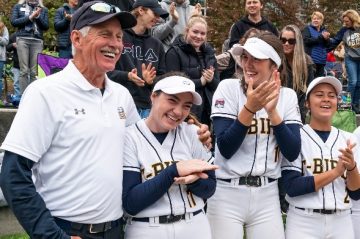 Gord Collings has received three degrees from UBC: B.Sc. 1975, B.Ed. 1976 and M.Ed. (Counselling Psychology) 1985. He was a teacher, counsellor and administrator in the Delta School District for over 34 years and is currently in his ninth year as the Head Coach of the UBC Softball Team.
Gord Collings has received three degrees from UBC: B.Sc. 1975, B.Ed. 1976 and M.Ed. (Counselling Psychology) 1985. He was a teacher, counsellor and administrator in the Delta School District for over 34 years and is currently in his ninth year as the Head Coach of the UBC Softball Team.
Gord began his career in education in 1976 and spent eight yearsat Delta Secondary School before returning to UBC to complete his M.Ed. He returned to Seaquam Secondary School in 1985 as a counsellor and became the Vice-Principal of Delview Junior Secondary School in 1989. In 1994 he was promoted to Principal and served at Sands Junior Secondary (1994-1999), South Delta Secondary School (1999-2006) and Seaquam (2006-2010) until his retirement in January 2010. He was a Certified Instructor for the Crisis Prevention Institute and gave workshops on school safety and classroom management for a number of school districts, the BCPVPA and the Justice Institute. He served on the Association of Delta’s School Administrators, was the district representative for the BCPVPA and the provincial Safe Schools Committee.
Gord has coached softball for over 25 years, both in the community and at the university level. He founded the softball program at Douglas College in 2009 and became the Head Coach at UBC in 2013. In addition to his coaching responsibilities at UBC, Gord serves on the UBC Athletics and Recreation Department Steering Committee on Equity, Diversity and Inclusion and has developed and presented team awareness and staff professional development activities focussing on anti-racism. He is a member of Softball Canada’s Coaching Development Committee and in addition to helping rewrite NCCP softball coaching requirements has helped develop standards that raise awareness and educate coaches to recognize and prevent bullying, abuse, harassment and discrimination in sport.
Shu Guo, MEd’04
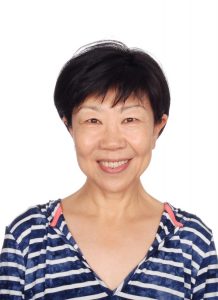
I graduated from the Faculty of Education in 2004. At first, I tried looking for jobs in education, but it seemed that was going to take some time. During this period, a friend of mine mentioned that they were having trouble finding baijiu here in Vancouver. I thought it was strange since baijiu is such a popular drink. I did some research and found out that it was, in fact, not readily available at the time. The growing immigrant demographic from China and other parts of Asia where baijiu is popular meant that there were probably many others just like my friend and that there might have very well been an untapped opportunity in importing baijiu. I decided that I would try my hand at liquor imports, and established a company to bring Chinese liquor to Canada. Later, the company would expand to the importation of liquor from other countries as well. In my experience, it’s best to choose authentic, high-quality products, with characteristics appealing to the respective market.
I never lost my love for education, and as I have a university teaching background from China, I wanted to find ways into the field here in Canada. In 2015, I started the process of establishing a school for liquor studies—the Liquor Business Academy. The aim is to offer programmes related to the liquor industry and business development; the registration process is now underway.
In the past year and a half, I have also published 2 books on Amazon related to Chinese liquor: “Baijiu: The Flavours of China” and “Huangjiu: Traditional Chinese Liquor”.
Mary Ann Carter, EdD’94
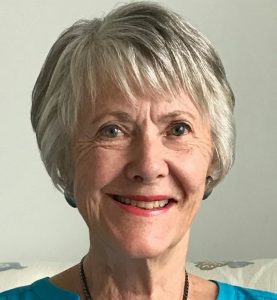
I graduated from UBC Graduate Studies, with a Doctorate in 1994, at the age of 54!
Since 1977, as a registered psychologist, I had a variety of professional, interesting interactions while practicing at Children’s Hospital, having B.C. government contracts, and in private practice.
While working on my Ed.D. I had the opportunity to do consulting in Bella Bella, 3 days a month for a few years. I learned so much from this Community. For example, if there is a potluck, attend it as your clients will not be at their appointment.
In 1999, I received the Park Davidson Award for a significant contribution to Psychology in British Columbia from the British Columbia Psychological Association for my work in the sexual abuse field.
When I retired, it was an enjoyable experience writing my autobiography and having it published, “Are You There Gin? It’s Me, Mary Ann at 80.” I did this for my children and grandchildren as I realized there was information about my elder relatives I wished I knew.
I play violin duets with a friend. We enjoy playing with the Brock House Chamber Group and Orchestra on a weekly basis.
In 2021, a group of women from a diverse educational, age-wise, financial, professional, religious, political, and sexual backgrounds established a Canadian registered, non-profit organization, WoW-Wings on Women. We provide women with educational, empowerment, and financial support in furthering their lives. We raise money and attract new members by participating in the UBC Farmer Market on the first and third Saturday, June-October.
Christine Ho Younghusband, BSc’93, BEd’94
Christine Ho Younghusband is an assistant professor in the School of Education at the University of Northern British Columbia (UNBC) and B.Ed. Coordinator of the UNBC Teacher Education Program. She has been a part of BC Education for over 25-years holding different roles ranging from teacher, parent, school trustee, and teacher educator. Christine graduated from the UBC Teacher Education Program in Secondary Education in 1994 after completing her degree in chemistry at UBC in 1993. She taught secondary mathematics and science for 16-years in BC public schools and held teacher leadership roles in professional development, mathematics department, and local association. Christine completed a Master of Education degree in Curriculum and Instruction from Simon Fraser University (SFU) in 2001, left teaching in 2010, and completed her Doctor of Education degree in Educational Leadership from SFU in 2017. During her doctoral studies, Christine was elected in 2011 as a school trustee serving 2-terms on the Board of Education and 3-years as director on the BC School Trustees’ Association Board of Directors. Her interests in mathematics and Indigenous education led her to opportunities to write for BC’s Curriculum, Open Schools BC, and First Nations Education Steering Committee. Christine has taught at SFU as a sessional instructor and currently teaches at UNBC and St. Mark’s College at UBC. She is a faculty senator, contributed to the B.Ed. and M.Ed. curriculum redesign, and loves working with Teacher Candidates. Christine is driven by innovation, collaboration, and student learning experiences and co-moderates #bcedchat on Twitter.
Christopher Lee, MEd’10
Christopher Lee is a second-generation Canadian with Chinese-Surinamese and German roots. He has lived and studied on Canada’s east and west coasts, and is currently based in his hometown of Toronto.
Chris has spent much of his career working on social justice and equity issues in arts, media, disability, education, and youth sectors in both British Columbia and Ontario. Currently the Director of Programming at Inspirit Foundation — a national philanthropic organization committed to building an inclusive and pluralistic Canada — Chris leads the organization’s grantmaking programs, evaluation strategies, and social impact initiatives. He mobilizes his expertise in program design, stakeholder engagement and facilitation, and systems thinking, and draws on a range of past professional experience, including frontline social service work, leadership development, and youth-driven, cross-cultural community building.
He holds a B.A. (Hons) in Philosophy and German Literature from the University of King’s College and an M.Ed. from the University of British Columbia, where he focused on social policy and disability rights. Chris has served on a number of nonprofit boards, and currently sits on both the Grassroots Grantmakers and First Unitarian Congregation of Toronto boards.
Regina Lyakhovetska, MA’03
Regina Lyakhovetska is an international education professional with expertise in international student services, study abroad programs and international partnerships development. She is also an English teacher, writer and translator. Regina has a Master of Arts degree in Educational Administration and Leadership and a Certificate in Intercultural Communication from UBC.
Regina came to UBC in 1999 as an international graduate student from Ukraine. Prior to that, she was a Fulbright scholar at the
University of Tennessee in Knoxville and an intern at the Library of Congress doing research in language and style of poetry for children.
At UBC, Regina became passionate about helping other international students and saw the need for their greater integration. Along with a dedicated team of student leaders, she advocated for international student issues in her role as the Founder of the International Students Association. Upon graduation, she worked for over a decade supporting international and exchange students at UBC and at King’s University College at Western University.
Regina published on international student experiences at UBC, the UBC differential tuition policy, and internationalization of Canadian universities. The UBC Global Citizenship report authored by her was called the seminal study on global citizenship in Canada at the CBIE conference in 2004. For her contributions to student life and learning environment, Regina was recognized with the Margaret Fulton Award at UBC and a Service Recognition Award at King’s.
More recently, Regina has served as the English Language Consultant for the companies in Ukraine that are expanding their global reach. To celebrate her father’s jubilee this year, Regina has collaborated with twenty partners in the USA, Canada, Mexico, Germany, Russia and Ukraine to promote his poetry. She has recently participated in a Vancouver Co-op Radio show along with her father. Regina dedicated her part to the many great colleagues and students who she has worked with in Canada, to her UBC professors, and to her parents, all of whom have taught her the world.
Leslie Buchanan, BA’88, BEd’92
Leslie Buchanan is an English teacher at West Vancouver Secondary School in West Vancouver, Canada. Over the past thirty years, Leslie has taught at two schools, in six different departments and in over 25 different teaching spaces. She started her English Literature degree at the University of Victoria but transferred in third year to the University of British Columbia. Leslie ran cross country and track and field at both universities.
She currently enjoys coaching the high school cross country and track and field teams but in her over 35 years of coaching, has coached a variety of other sports including basketball and field hockey. She chairs many committees including the BC High School Parathletes Track and Field Inclusion Committee.
Leslie has been involved with triathlon since the mid-1980s. She volunteered with the International Triathlon Union (now World Triathlon) putting on races, doing administrative tasks and officiating throughout the 1990s. Highlights during this time were helping to create the first Triathlon Competition Rulebook and lobbying International Olympic Committee members during the 1992 Barcelona Summer Olympics for triathlon’s inclusion into the Olympic Games. After officiating at the Sydney Olympic Games as the Chief Technology Official, Leslie was named ITU’s Technical Director. This allowed her to teach part-time and be seconded to ITU part-time. She held that position until 2008, when she became ITU’s Anti-doping Director. Leslie was a member of the Tokyo 2020 Olympic Games Anti-doping Expert Taskforce. At the end of 2020, Leslie stepped down from her triathlon staff role and was elected to the World Triathlon Executive Board which allowed her to return to the classroom full time for the 2021-2022 school year.
With the encouragement of West Vancouver’s Superintendent, Chris Kennedy, who knew of Leslie’s interest in the Olympic Games, she received Board Approval to teach a blended course on the Olympic Games in conjunction with the timing of the 2010 Vancouver Olympic Games.
Leslie enjoys officiating at triathlons and facilitating technical official’s courses because she gets to use her skills as an educator. She knows that her triathlon activities help her in her classroom as she can bring many real-life experiences into her classroom.
Leslie holds a Master’s degree from San Diego State University and two Bachelor degrees from the University of British Columbia.
María del Carmen Benítez Flores, MET’08
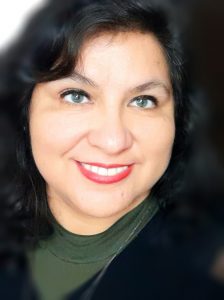
Carmen is a graduate of the Master’s degree program in Educational Technology by Tecnológico de Monterrey and UBC, and graduated with honors in English Language and Literature by Universidad Autónoma de Chihuahua; she is currently Head of Foreign Languages at Prepa Tec CEGL, Leader of Foreign Languages regionally, and member of the National Academy of Foreign Languages for the Prepa Tec system.
She has taught English for more than 30 years, is an examiner for the International Baccalaureate and has taught from kindergarten level to Ph. D. programs. She wrote a Bachelor’s degree research leading to the development of a children’s picture dictionary, a Master’s degree thesis on the use of technological tools for foreign language learning, articles on teaching poetry in the classroom, and reviews for different Mexican poets; she has offered conferences and lectures in Mexico and the US. She currently teaches American, British and Post-colonial literature.
She has collaborated in the design of online courses in different languages and on Competence-Based Education, has trained and led international teachers, and has participated in meetings in the UK and the Netherlands for standardization and curriculum development projects; she has also offered webinars on assessment.
Carmen and her husband, Rafael Cárdenas Aldrete, promote readership and creative writing through Poetazos, a light-hearted humorous editorial concept that fosters a positive contact with literature. They have published emerging and consolidated writers from Latin America and Europe.
She is delighted to be UBC Global Alumni Ambassador for Monterrey, Mexico.
Paul Boots, BEd’92
After teaching Business at numerous schools such as Burnaby Central High School and the majority in the Windsor Ontario area, teaching took a real change for Boots. He took a job as a Student Success Teacher within the Windsor Essex Catholic District School Board. The job was designed to help students succeed who are struggling in the brick and mortar setting through experiential learning (cooperative education). But with the job starting in September, he had no students. So Boots and a colleague decided to go and find students. Fourteen years later they have found thousands. “We did almost 60 presentations in the first three years and the phone hasn’t stopped ringing.” The majority of the students are over 18 and have paid employment. Most are only short a few credits and each student has a unique story. “Some of the stories you hear can bring you to tears, it is a very humbling job. When we first started the job, it was a real eye opener.” Boots and his colleague have been featured in a British Journal for Education. “We were dubbed the ‘Coffee Shop Teachers’ in the article by the writers from the University of Windsor.” They meet most of the students in coffee shops, explain how the program works and continue to help students earn a high school diploma. “It is both humbling and very rewarding at the same time.”
During his 30 year teaching career he has also coached both cross country and track and field. Most recently, the cross country team at St. Clair College in Windsor where he is the Head Coach. The men’s team won the National Title in 2018 and Team Silver in 2019. In addition, one of his former high school runners has gone on to compete in two Olympics. “I have been blessed to do what I do. Thanks to UBC, I landed the best vocation possible for me.”
